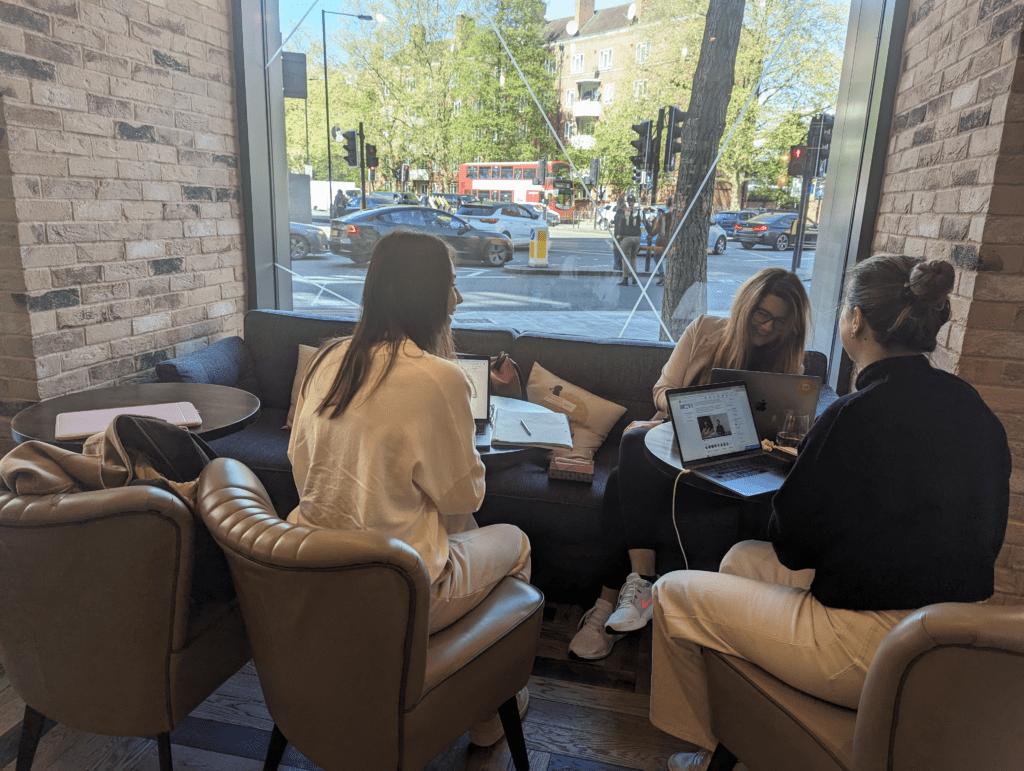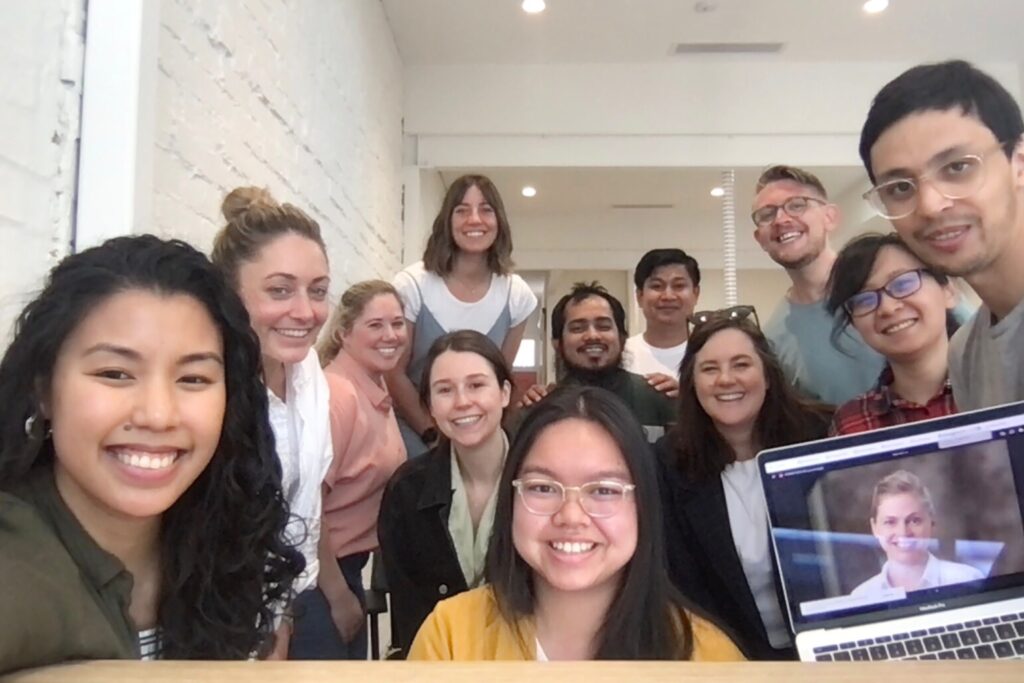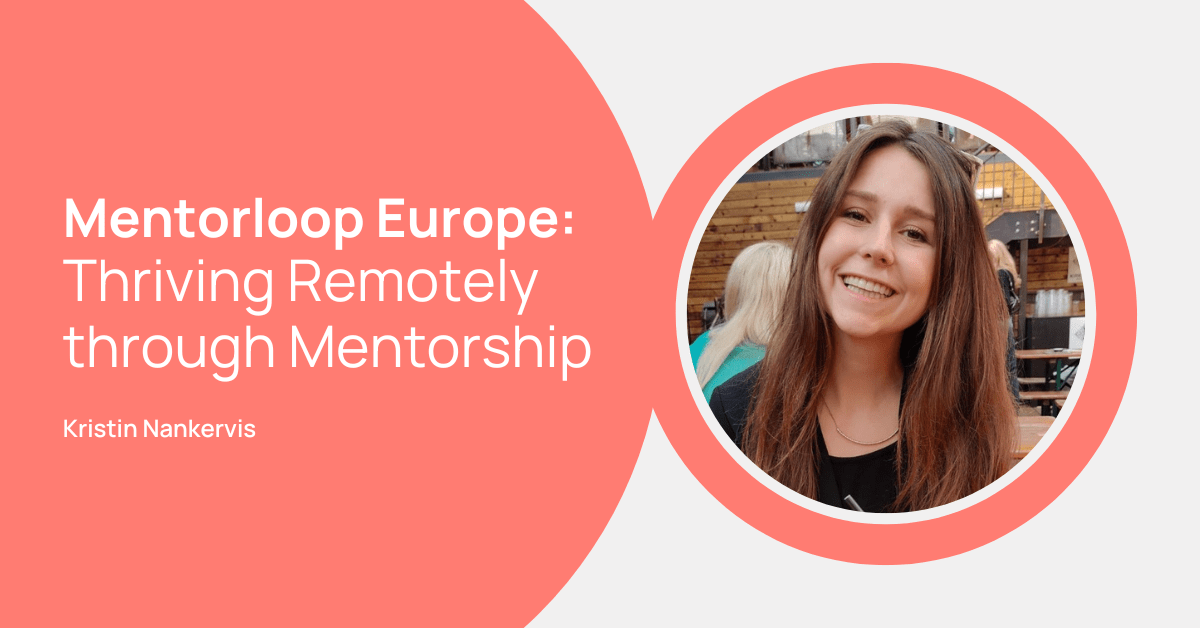Over the past couple of years, remote work has become a cornerstone of my professional life. While it offers unmatched flexibility and convenience, it also introduces unique challenges that require careful navigation.
In a 2021 report by FlexJobs, it was found that remote work has grown 159% since 2005., introducing new dynamics that many of us are still adapting to. With this in mind, it’s no surprise that remote working continues to be a regular topic of discussion between myself, colleagues and friends, as well as in discourse online and in forums more generally regarding the world of work.
So in this article, I want to share how mentoring has helped me and my fellow Mentorloop peers navigate the challenges that come with this new way of working and transform our remote work experiences.
Challenges of Remote Work
While remote work offers significant benefits for personal and professional development, it also presents challenges that can impact productivity and well-being. From feelings of isolation to communication barriers, remote workers face a complex landscape that requires new strategies to maintain effectiveness and job satisfaction.

Communication Barriers
Effective communication is crucial in any work environment, but it becomes even more critical in a remote setting. Without the benefit of face-to-face interactions, messages can easily be misinterpreted, leading to misunderstandings that can impact team morale. Text-based communication lacks the nuance of tone and body language, making it harder to convey emotions and intent accurately. Additionally, coordinating across different time zones and managing the flow of information can become cumbersome, often resulting in delayed responses and fragmented conversations. These barriers can hinder collaboration and reduce overall team efficiency.
Communication and other soft skills like teamwork, emotional intelligence, and transparency are often developed through personal experiences, interactions with others, and self reflection – all of which mentoring facilitates.
Marina, our Director of Customer Growth at Mentorloop, joined in 2021 – when remote work became the “new normal” due to worldwide lockdowns. And to add to that, Marina was also Mentorloop’s first full-time remote employee. She realized early on the importance of being super intentional in her approach to working remotely so she could build rapport and foster connection with her new team of colleagues despite being on the other side of the world (not to mention opposite time zones!).
Marina shared with me that she sought support through a more traditional mentoring relationship to help her approach these challenges. Speaking to someone with experience in these areas helped her be proactive about building productive relationships and promote collaboration with her Australia-based colleagues. By sharing practical support and strategies, such as how to run an effective remote meeting or ways to facilitate productive brainstorming sessions without being in the same room, this mentoring relationship empowered her to remain conscious about working well remotely and implement productive and positive working behaviours early on in her new role.
Similarly, I learned to adapt my communication style when I joined Mentorloop. Written text had not been the form of communication I was used to within teams before this, and I hadn’t fully appreciated just how huge the role tone of voice and body language played in interpersonal interactions.

I’m grateful to have had Marina, who had been through similar challenges, and helped me adapt to a working environment where those in-person elements did not exist. In particular, demonstrating empathy, respect and openness in written communications was a huge lesson for me to avoid misunderstandings and strengthen relationships between colleagues.
Lack of Human Connection
The absence of face-to-face interactions can lead to profound feelings of isolation and loneliness, making it difficult to build and maintain strong relationships with colleagues. This disconnect often results in employees feeling misunderstood and lacking support over shared challenges and emotions. Without the daily social interactions of an office environment, remote workers struggle to find the support and camaraderie they need to stay engaged, motivated and connected with their teams, which is not only detrimental for the individual remote worker, but overall company culture, morale and even performance.
Marina shared that she also meets regularly with a connection who’s in a similar role at a different organization to engage in a peer mentoring relationship. One of the unique aspects of peer-to-peer mentoring is the power of mutual support. It’s not just a mentor guiding a mentee; it’s a reciprocal relationship built on trust and empathy. Peer mentors understand the challenges and struggles that their peers face because they have likely experienced them themselves. This shared experience creates a sense of belonging and understanding, making it easier to offer genuine support and guidance. Through peer-to-peer mentoring, Marina and her mentoring partner provide emotional and moral support needed to navigate challenges, celebrate each other’s successes and provide a safe space for honest conversations.

I can also attest to the importance of building human connection. I’m grateful to say that I feel greatly connected to and supported by my team based in Australia, despite only meeting most of them in-person once (some not at all!).
I believe this is testament to the culture of Mentorloop and the values it instills amongst the team, and also in part down to the influence and encouragement of Marina (who I consider a mentor), and other peers. From the early days of my time at Mentorloop, I’ve been encouraged to make use of the tools and technology available to us to connect with our colleagues across the world, making time for personal catch-ups as well as work related conversations.
Learning and Development
For remote workers, missing out on informal learning opportunities and face-to-face feedback can hinder development and career progression– all of which supports the organization overall by driving engagement, employee satisfaction and retention. For those reasons, it’s really important, especially for remote workers who are at risk of missing out on informal learning opportunities that occur through observation and casual office interactions. Without direct access to mentors and peers, gaining insights and feedback becomes more difficult. The lack of visibility can also mean that contributions and efforts, especially those that are less tangible or visible, go unnoticed, making it harder for remote workers to demonstrate their growth and secure development opportunities. This can stall career progression and hinder the acquisition of new skills, not to mention negatively impact employee happiness.
Mentoring is a powerful way to bridge that gap. It helps provide a space for personal guidance and feedback that can be hard to come by in a virtual environment, while helping remote workers develop new skills that not only enables them to stay accountable to their goals but gain visibility for their progress and contributions too.
I was fortunate enough to learn early on in my career the importance of celebrating your successes. In my first job out of university, I found myself overwhelmed with my to-do list and spent too much time focusing on the things I did “wrong” or weren’t up to the standard I expected for myself. My mentor at that company spotted this trend and explained to me how this negative thought cycle could impact my progress. She immediately encouraged me to create a “ta-dah” for every “to-do”. My “ta-dah list” held me accountable to documenting my achievements no matter how small, cultivating a sense of strength and ability in myself that gave me the confidence to take on bigger challenges, more responsibility and ultimately make bigger steps forward in my career.
From a more practical perspective, it also put me in a position to approach performance reviews more effectively as I was better equipped to identify my strengths as well as weaknesses and set more meaningful goals for myself.
Recognizing and shouting about your own success can be difficult however, and so having a mentor to continuously help shine a spotlight on such areas and ask the right questions to encourage productive self-reflection is really important, especially in my remote working role where it’s even easier for “invisible work” that drives success to go unnoticed.
Work-Life Balance
The unparalleled flexibility that remote work offers is great for achieving a healthy work-life balance. However, without effective prioritization, productivity strategies, and clear boundaries, this flexibility can quickly turn into a double-edged sword.
The blurring of boundaries between home and work often leads to longer hours and difficulty switching off, resulting in burnout and a lot of time spent doing a lot but not necessarily achieving a lot. Without the structure of a traditional office environment, staying focused and managing workload can become overwhelming amid distractions and the inability to efficiently seek support from a colleague as you would in an office. Speaking with my fellow remote working colleagues, it’s clear this is something we’ve all had to work through at some point or another, as the constant presence of work-related tasks in my home environment can make it difficult to fully relax and recharge.
Jess, our Sales Lead for the EMEA region, has a young family and school timetables to manage. She expresses tremendous gratitude for the flexibility that her remote role brings, along with the support of colleagues at Mentorloop. However, while the flexibility of remote working is a significant benefit for various reasons, it can be challenging to draw a hard line between work and home life. In a sales role in particular, the job is never really finished. Although she enjoys the dynamic nature of her work, the tendency to check emails late into the evening and respond to tasks immediately, regardless of whether you’re working or not, is a real challenge when your office is also your home.
Through informal group and peer mentoring, we’ve all been able to connect on these similar challenges, reminding one another of the importance of setting healthy boundaries and holding each other accountable to behaviours that protect our mental health and set us up for success. Jess describes the presence of an outside perspective as vital in recognizing when patterns are becoming unhealthy.
I’ve also experienced similar challenges with achieving a healthy work life balance and managing my workload. And thankfully I had an experienced mentor in a past job who helped me enact practical strategies to manage my workload. This included things like the ability to understand what was a priority by requesting deadlines, time blocking, and “eating the frog”.
Meanwhile, more informal mentors in my personal life helped me understand how physical and mental wellbeing is fundamental to career performance and success. This helped me reflect on behaviours and habits, both in and outside of work, that have a negative impact on how I show up everywhere in my life. With this enhanced self-awareness, I was empowered to identify areas for improvement and my mentor became a source of accountability to help me stick to lifestyle shifts and behavioural changes that helped me adopt a more human-centric, holistic approach to my career, and ultimately achieve a healthy work-life balance.
And finally, with my fellow remote colleagues at Mentorloop, I engage in a kind of peer/group mentoring relationship in which we share struggles and advice to support each other through these challenges, such as the importance of creating a dedicated workspace and adhering to a schedule that suits our personal energy levels and productivity.
Final Thoughts
In summary, remote work presents several challenges for both employees and organizations. Since remote work is here to stay, it’s crucial for individuals and employers to implement tools like mentoring to navigate these challenges. Reflecting on my own journey, mentoring has been a game-changer, empowering me to thrive in a fully remote role and achieve health, balance, and happiness in life and work.




